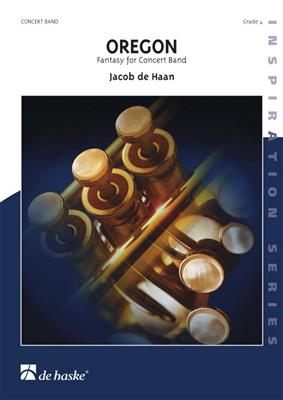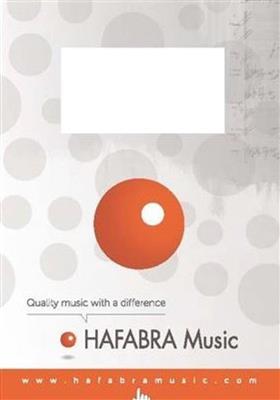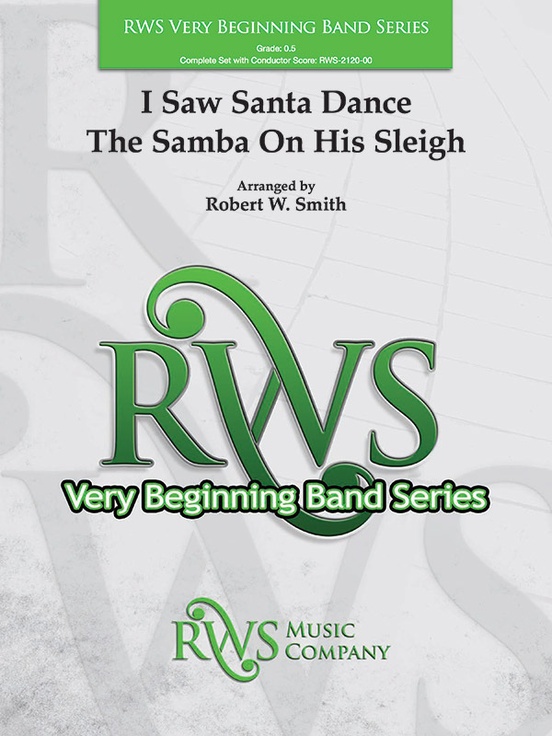Results
-
 £104.99
£104.99Prelude and Polonaise - Nikolai Rimsky-Korsakov
Nikolai Rimsky-Korsakov (1844-1908) composed his opera The Night before Christmas in 1894-95. The premiere took place on December 10 1895 in St. Petersburg. The libretto to the opera came from Rimsky-Korsakov himself and is based on a tale by Nikolai Gogol, which some years earlier had already served as operatic material for Pjotr Tchaikovsky. The opera tells the story of Vakula, the blacksmith of a small Ukranian village. He is madly in love with Oxana who demands - as proof of his love - a most unusual Christmas present: the magnificent slippers of the Empress. Knowing full well that, in normal circumstances, he would never be able to fulfil Oxana's wish, Vakula seekssupernatural assistance and finds it in the shape of the devil, who comes up with a ploy to help him. The devil carries him on his back to St. Petersburg, where during a lavish reception at court Vakula finds an opportunity to present his request to the empress. The Empress actually agrees to Vakula's wish and hands over her slippers to him. Thereupon he returns to his own village. Here, in the meantime, he had been given up for dead, and Oxana had been plunged into great sorrow as she had come to realise that she also truly loved Vakula. In the end, however, all misunderstandings are resolved and all adversities overcome: Oxana receives her extravagant present, the lovers are united, and the church bells call the villagers to the Christmas service.The vibrant Polonaise is played in the 3rd act of the opera at the entrance of the Empress, whose appearance is anticipated in the prelude by the fanfare motives. The music paints a vivid picture of the party atmosphere and the marvellous dcor at the imperial court of St. Petersburg, which Rimsky-Korsakov conjures up in his opera and which can also be played outside of the Advent and Christmas season, for example as an opening piece to any festive concert.
Estimated dispatch 7-14 working days
-
 £149.99
£149.99Caledonia - Oliver Waespi
In Caledonia, Oliver Waespi adapted three well-known Scottish folk songs into a rhapsodic suite for wind orchestra. The first, rather humorous song, The Devil Came Fiddling Through the Town, tells the story of a devil who, as he passes through the streets of the town, catches the tax inspector and carries him off, much to the delight of the inhabitants. The second song, Ye banks and braes, is gentle and melancholy and based partly on the folk song Hey, tuttie tattie. Oliver Waespi took a symphonic approach to the adaptation of these lovely songs, which makes this a unique and innovative suite that can be performed at a concert or contest. Theindividual parts can also be performed separately.
Estimated dispatch 7-14 working days
-
£122.50
For Unto You Is Born This Day! - James L. Hosay
A magnificent offering for your Christmas performance! James L. Hosay has taken the story of the birth of Christ, according to the Gospel of Luke, and set it to heart lifting music. A stunning and unforgettable performance can be had with a chorus or with a narrator. Either way, this piece will add to the festive mood of your Holiday concert and help your audience feel the true spirit of Christmas. If you do a concert where a chorus performs half and a concert band performs half, consider programming FOR UNTO YOU IS BORN THIS DAY as a grand finale. If your performance stage is a bit cramped for that many musicians all at once, perhaps having the chorus surround the audiencewill work for you. The "surround-sound" effect can be wonderful.
Estimated dispatch 7-14 working days
-
 £137.99
£137.99Oregon - Jacob de Haan
This fantasy tells the story of Oregon, one of America's north-western states. Traveling by train on the Northern Pacific Railroad, the listener is taken through the fascinating Oregon landscape. Indians, cowboys, golddiggers and hooded wagons will file past on this adventurous journey. The piece has some similarities with a soundtrack of a movie. Various melodies, which could be the main themes of a movie, pass the review.The piece begins in a slow movement, introducing the first theme in minor. Then we hear in the following fast movement the trombones imitate the train, whistling the steam-flute. We hear the characteristic minor theme again, but now in different variants(also in major). The rythmic structure of "western" stile and rock succeed each other. This is leading to the slow movement, where the signals of horns and trumpets introduce a wonderful vocal melody. After this characteristic melody, the fast movement appears shortly again, the trombones whistling the steam-flute again (now in major). We hear also some musical elements, that plays a part in the following Presto. Barchanges, jazzy chords, interesting rhytmic patterns (with bongo) and an original theme are the characteristics of this Presto. After this, the horns announce the last section of the piece. Interesting is the fact that we hear in this Allegro section a variant of the vocal melody in the slow movement. Also the Presto theme returns shortly, followed by the Allargando, which is a grand characteristic end of a soundtrack. The movie of our travelling fantasy has come to an end.
Estimated dispatch 7-14 working days
-
 £94.99
£94.99Conzensus - Jan Van der Roost
This stately concert opener was originally written by Jan Van der Roost for a special event in which six respected wind orchestras (two Belgian and four Dutch) of different composition (two symphonic bands, two fanfare bands and two brass bands) were featured during six concerts. Each evening brought forth a performance by a symphonic band, a fanfare, and brass band, so that the audience could experience all three types of ensembles. This was indeed an original concept.The name, ConZEnSus, comes from a combination of the words, 'Concert Cyclus' (concert series) and 'zes' (Dutch for 'six'). This leads to a new word, which refers to 'consensus'. The general tenor of the cycle isthus immediately indicated. The richness of color of the various ensembles is revealed through an open and friendly atmosphere. During all six concerts (over a span of three years), ConZEnSus functioned as a permanent opening number for each orchestra. Thus the same musical story was portrayed in three different packages.
Estimated dispatch 7-14 working days
-
 £109.99
£109.99Arctic Funk - Torstein Aagaard-Nilsen
Arctic Funk might just as well have been a flashing sequel to a scene from Leonard Bernstein's West Side Story. Popular music but with a difference, as indicated by the title. The work's quiet section temporarily soothes down the heated passion of its two corner movements, but everywhere else action is required throughout. The work was commissioned in 1991 by Troms? Brass. Situated just above the Polar Circle, Troms? is one of Norway's northernmost towns. Topographically, the town probably comes across as freezing cold, but Troms? is famous for its 'warm' night-life. The Composer: In Arctic Funk you might get a feeling of a party that takes place betweenice-rocks and snow-capped mountains.
Estimated dispatch 7-14 working days
-
 £117.80
£117.80Freedom Defended - Rossano Galante
Inspired by the non-violent civil rights protest of February 1, 1960 against a segregated lunch counter in Greensboro, NC, Freedom Defended strives to encapsulate the story of this now historic event. Commissioned by the band directors of the North Carolina Central District and East Central District Bandmasters Associations, this four movement piece honors each of the North Carolina Agricultural and Technical State University students known as the "Greensboro Four", Joseph McNeil, Franklin McCain, Ezell Blair Jr., and David Richmond. Their actions directly led to the Civil Rights Act of 1964 which mandated desegregation in public spaces. Movement 1 (Da Sogno) - The opening thematic material is dream-like and idyllic as the "Greensboro Four" enter the Woolworth Store at 132 South Elm Street and peacefully sit at the lunch counter and order coffee. Movement 2 (Con Fuoco) - The piece takes a dark turn when they are refused service and are told "We don't serve Negros here". The music is somewhat dissonant and rhythmic but a heroic theme captures the tenacity and courage of these brave young men. Movement 3 (Molto Cantabile) - A plaintiff theme portrays the hopelessness the four freshmen faced as they continued to be refused service until they leave when the store closed that night. Movement 4 (Con Spirito) - Undeterred, the "Greensboro Four" returned the next day, this time joined by more than twenty other black students. While they were again refused service, the sitins began to attract media attention and each day more and more students, both black and white, joined the cause. By February 4th, over 300 students staged sit-ins not only at the Woolworth Store but also the lunch counter at Greensboro's S. H. Kress & Co. The music is rejoicing and uplifting, similar to the opening statement, but now fully orchestrated and more fully developed. Coda - a quiet theme based on the motives from the opening thematic material brings the work to a reflective close as we remember these four men who, in the face of adversity, stood up for equality for all men and women.
Estimated dispatch 7-14 working days
-
£59.80
Die Lustigen Dorfschmiede - Julius Fucik
Reading the title of this piece, namely "The Happy Village Smiths" it rather suggests a character piece than a zestful march. However, the saying "Don't let yourself be fooled" also applies in this instance, as "The Happy Village Smiths" belong to Fuc k's most popular marches. In an article that appeared in a Styrian local paper in the 1930s, Christine Fuc k speaks about common vacations with her husband in Gleisdorf. On the occasion of a walk in the vicinity of that city the couple came past a blacksmith's shop. The rhythm of the two blacksmiths hammering away on the anvil allegedly inspired Fuc k to compose this piece. Since the march goes back to the year 1908, and Christine and Fuc k's friendship started - not without frictions - only one year before that date, there are doubts concerning the validity of the story, although this report constitutes the only reference on the birth of this march.
Estimated dispatch 7-14 working days
-
£149.99
Noah's Ark - Bert Appermont
Noah's Ark is a composition based on the well-known bible-storys in which Noah builds an ark to conquer the flood. This work portrays four impressions, each of them introduced by a theme. To add dramatic power a synthesizer or a wind-machine can be used. The story can also be read by a narrator during the performance.
Estimated dispatch 7-14 working days
-
 £50.50
£50.50I Saw Santa Dance the Samba on His Sleigh
Based on the holiday classic Jingle Bells, this clever arrangement by Robert W. Smith for the beginning band is based on the story of a young child hearing a bit of a commotion in the living room on Christmas Eve. Upon sneaking down the stairs, the child is surprised to see Santa having a great time dancing the samba as he delivers the gifts and then soars out of sight. Fun and entertaining, this new arrangement for beginning band will be a hit at your holiday concert!Original Item#: RWS-2120-00
Estimated dispatch 3-5 working days
